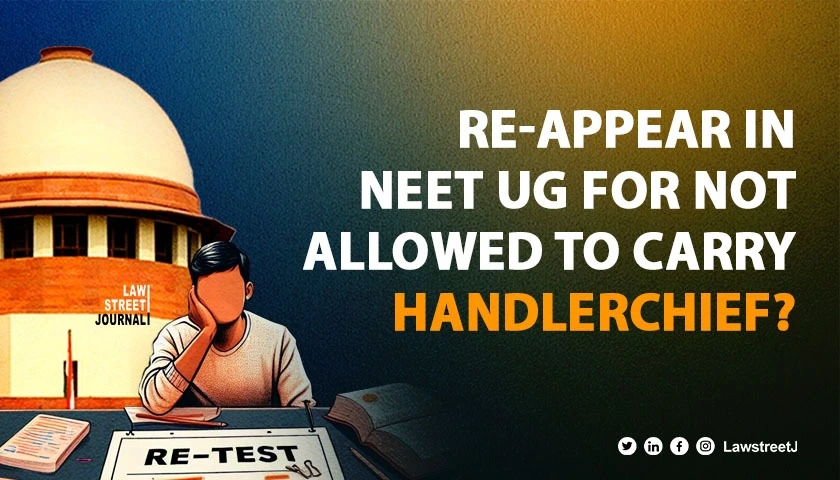NEW DELHI: The Supreme Court has rejected a contention by a candidate seeking a chance to reappear in NEET(UG) 2024 as he was not allowed to carry handkerchief during the examination despite suffering from 'Hyperhidrosis'.
A bench of Chief Justice of India D Y Chandrachud and Justices J B Pardiwala and Manoj Misra Talluri Srikar against the Telangana High Court's order which said the candidate could have used his clothes to wipe off sweat if he was not allowed to carry handkerchief.
The court said courts must be circumspect in entertaining an individual grievance relating to a public examination since it delays finalisation of result, seriously prejudicing larger public interest.
In his arguments, the candidate claimed he suffered from a medical condition called ‘Hyperhidrosis’ of palms and soles. So, he required a piece of cloth, such as a handkerchief to wipe off the sweat.
The candidate claimed he was barred from carrying handkerchief which affected his performance, so he must be given a chance as was done in the case of 1563 candidates due to distribution of wrong set of question papers.
The bench, however, said answers in the NEET(UG) were to be given by darkening blank circles on the OMR sheet. In such a case, the use of a pen or a pencil is much less than where answers are to be written.
"Hence, the view taken by the High Court that denial of permission to take a handkerchief inside the examination hall would not have materially affected petitioner’s performance, as he could have rubbed his palms on his clothes, is a plausible view," the bench said.
The Telangana High Court had dismissed the writ petition by the candidate, saying even if it is assumed that the petitioner was wrongly denied permission to carry a handkerchief, it would not have materially affected his performance in the examination as sweat on palms could easily be wiped off on the clothes worn by a person.
The court thus also said it is not a fit case for interference since it is not a plea here that allotted time for giving the examination was not provided to the petitioner at the examination center.
The court also said the case of the petitioner is distinguishable from those 1563 candidates for whom re-examination was conducted because of loss of examination time on account of delay in distribution of correct question paper.















